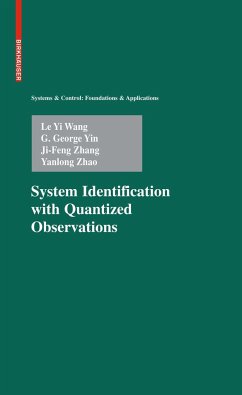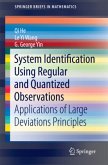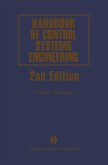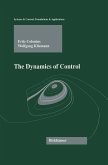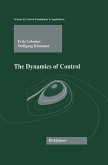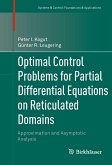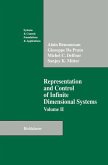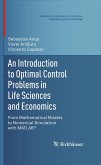Written for a broad audience of graduate students, researchers, and practitioners alike, this volume offers dedicated coverage of quantized information in system identification. Applications to signal processing, computer networks, mobile agents, telemedicine, and data fusion are included.
This book concerns the identi?cation of systems in which only quantized output observations are available, due to sensor limitations, signal quan- zation, or coding for communications. Although there are many excellent treaties in system identi?cation and its related subject areas, a syst- atic study of identi?cation with quantized data is still in its early stage. This book presents new methodologies that utilize quantized information in system identi?cation and explores their potential in extending control capabilities for systems with limited sensor information or networked s- tems. The book is an outgrowth of our recent research on quantized iden- ?cation; it o?ers several salient features. From the viewpoint of targeted plants, it treats both linear and nonlinear systems, and both time-invariant and time-varying systems. In terms of noise types, it includes independent and dependent noises, stochastic disturbances and deterministic bounded noises, and noises with unknown distribution functions. The key meth- ologies of the book combine empirical measures and information-theoretic approaches to cover convergence, convergence rate, estimator e?ciency, - put design, threshold selection, and complexity analysis. We hope that it can shed new insights and perspectives for system identi?cation.
This book concerns the identi?cation of systems in which only quantized output observations are available, due to sensor limitations, signal quan- zation, or coding for communications. Although there are many excellent treaties in system identi?cation and its related subject areas, a syst- atic study of identi?cation with quantized data is still in its early stage. This book presents new methodologies that utilize quantized information in system identi?cation and explores their potential in extending control capabilities for systems with limited sensor information or networked s- tems. The book is an outgrowth of our recent research on quantized iden- ?cation; it o?ers several salient features. From the viewpoint of targeted plants, it treats both linear and nonlinear systems, and both time-invariant and time-varying systems. In terms of noise types, it includes independent and dependent noises, stochastic disturbances and deterministic bounded noises, and noises with unknown distribution functions. The key meth- ologies of the book combine empirical measures and information-theoretic approaches to cover convergence, convergence rate, estimator e?ciency, - put design, threshold selection, and complexity analysis. We hope that it can shed new insights and perspectives for system identi?cation.
From the reviews:
"The central idea in this book is to provide a comprehensive treatment of both theory and algorithms needed for parameter identification of systems with quantized observations. ... the book conveys a clear and very complete overview of recent exciting developments in the area of identification with quantized observations. It is meant as a 'state-of-the-art' book ... . All this makes the book an extremely valuable resource for researchers and engineers interested in modern system identification." (Dariusz Ucinski, Mathematical Reviews, Issue 2011 i)
"The central idea in this book is to provide a comprehensive treatment of both theory and algorithms needed for parameter identification of systems with quantized observations. ... the book conveys a clear and very complete overview of recent exciting developments in the area of identification with quantized observations. It is meant as a 'state-of-the-art' book ... . All this makes the book an extremely valuable resource for researchers and engineers interested in modern system identification." (Dariusz Ucinski, Mathematical Reviews, Issue 2011 i)

